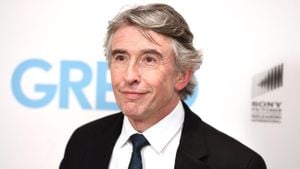Germany's political climate took a dramatic turn on December 16, 2023, when Chancellor Olaf Scholz lost a confidence vote, setting the stage for early elections expected on February 23, 2024. This significant event marks just the sixth time since World War II such a vote has occurred, underlining the gravity of the current political instability.
Scholz, leading a minority government since the collapse of his three-party coalition, garnered the support of only 207 lawmakers from the Bundestag, substantially below the 367 votes needed for victory. With 394 lawmakers opposing him and 116 abstentions, Scholz's loss brings to light the mounting discontent among German politicians and citizens alike.
At the heart of this political upheaval was the firing of Finance Minister Christian Lindner on November 6, which ended the coalition government consisting of Scholz's Social Democratic Party (SPD), Lindner's Free Democratic Party (FDP), and the Green Party. Scholz’s decision followed growing disputes over economic policies aimed at revitalizing Germany's stagnant economy.
Scholz, addressing lawmakers before the vote, posed poignant questions to the electorate, asking, "Do we dare be a strong country, to invest powerfully in our future?" He positioned himself as someone willing to invest significantly to modernize Germany's self-imposed debt rules, increase the national minimum wage and lessen value-added tax on food. His appeal emphasized the need for national unity and investment to secure the country's future.
Critics, including center-right challenger Friedrich Merz of the Christian Democratic Union (CDU), responded with strong opposition. Merz slammed Scholz's leadership style, accusing him of leaving Germany to navigate one of its deepest economic crises. He asserted, "You’re standing here and saying, business as usual, let’s run up debt at the expense of the younger generation." The accusation revealed deep divides between governing and opposition parties, reflecting broader public dissatisfaction with the current government's direction.
The looming election, prompted by the no-confidence vote, is expected to deepen Germany's political crisis. Despite his recent electoral position, Scholz continues to face challenges as he aligns with Vice Chancellor Robert Habeck of the Green Party, aiming for potential new alliances. The SPL is trailing behind its main opposition, and there are concerns around the rise of the far-right Alternative for Germany (AfD), which is polling strongly and has nominated Alice Weidel as its chancellor candidate.
This situation positions Scholz at risk of being ousted as chancellor. Polls indicate the CDU, alongside its Bavarian affiliate CSU, leading the race and putting Merz back at the forefront of German politics. Political analysts believe the election campaign will focus heavily on themes such as immigration, economic revival strategies, and tackling the challenges posed by the war in Ukraine, as these are pivotal issues for the electorate.
Beyond immediate economic actions, scholars have highlighted the challenges posed by increased foreign trade and security concerns resulting from geopolitical tensions. Kallum Pickering, chief economist at Peel Hunt, views the election outcome as pivotal for implementing necessary fiscal stimulus measures to stabilize Germany's economy.
Scholz’s confidence vote gamble reflects strategic maneuvers among global political leaders, including European uncertainty as tensions rise internationally. If successful, he could return to power reinvigorated, but current indications suggest Merz and the CDU have the advantage heading toward the elections.
It remains to be seen how the dissolution of parliament will reshape the political scene and whether Scholz can mount enough support to secure his position. Many citizens have voiced concerns about returning to more austere policies or coalition agreements if the CDU takes charge.
This upcoming election is anticipated to not only impact Germany's future governance but also signal the potential direction of European politics as the continent grapples with similar crises. Scholz's presidency will hang on the balance as voters voice their discontent and seek change through the ballot box.
With the election date fast approaching and political tensions mounting, Germany prepares to navigate this transformative political period, rife with uncertainty and call for revitalized leadership and effective governance.



